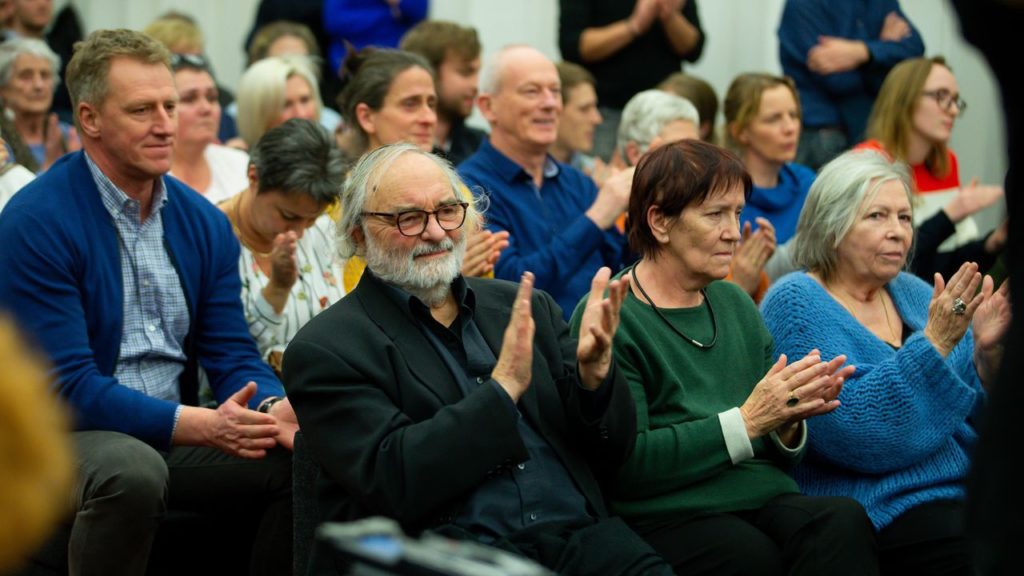The trial in Ghent this week in which three doctors were acquitted of manslaughter after carrying out a procedure of euthanasia alleged to be in breach of the rules has led to fundamental questions about the law from all sides of the debate.
The jury was clear in its verdict for two of the doctors: the GP of Tine Neys, who could not have known where his advice would lead and who did not in fact know that the procedure had gone ahead; and the psychiatrist Godelieve Thienpont, who made no procedural mistakes.
In the case of the doctor who carried out the euthanasia, on the other hand, the jury expressed some doubt whether the correct procedure had been followed, and as the law requires, the bench considered that reasonable doubt acts in the favour of the accused.
One of the first reactions came from lawyer Fernand Keuleneer, who had been representing the siblings of Tine until it was revealed he had sat on the euthanasia committee that approved the procedure – a posteriori as always.
Keuleneer, despite taking part in the process, described the 2002 law as “without controls. Everyone does what he wants.” Euthanasia, he said, had turned into “an industry”.
Keuleneer’s role in the process is all the more remarkable because he is a devout and prominent Catholic intellectual, who once represented the Cardinal archbishop of Brussels and Mechelen, Godfried Danneels, in a matter relating to child abuse by clergy.
If anyone might have been relied on to highlight failings in the procedure at the time, it should have been him. Instead, the process in Tine’s case was approved without a dissenting voice.
One of the main questions raised by more than one lawyer during closing statements concerned how incomplete the law is. It does not, for example, provide for any sanction by itself, which leads to the rather grotesque result that a doctor who commits the least procedural error can end up in court charged as a killer.
The danger of such situations being one of possible jury nullification – where a jury will refuse to convict because the charges are too strong, even though the evidence might otherwise be compelling. No-one is suggesting that happened in this case, but it surely cannot be ruled out for the future.
The role of the euthanasia committee was also called into question, especially by the prosecution. As the law stands, each case of euthanasia must be registered with the committee within four days of taking place, and they must then proceed to an evaluation of the circumstances.
The question here is: why not carry out an evaluation before the procedure, while the patient is still alive? Proponents of that view point to the glaringly obvious fact that not a lot can be done after the patient has died to remedy the situation. Opponents argue that the three doctors involved in the procedure are enough of a guard against misuse, with the committee acting only as a buffer.
Lastly, Belgian law allows any citizen to begin a criminal procedure by making a complaint to an investigating magistrate and paying a deposit of €500. That is what the parents of Tine did to see this case come about. Critics from the defence side question whether that law does not give civil parties rather too many rights.
The reactions of politicians to the verdict ranged from doubtful to welcoming. According to senator Jean-Jacques De Gucht (Open VLD), the verdict shows “the law as it stands is working exactly as it was intended to”. A suggestion by justice minister Koen Geens that the trial suggested the need for an evaluation of the law and a possible amendment was “wrong,” De Gucht said.
The national order of physicians tended towards Geens’ point of view, however. “We need to upgrade it slightly, without touching the people’s right to self-determination,” commented deputy chair Michel Deneyer. The trial, he said, had dealt a blow to public confidence in the procedure.
At the announcement of the verdict, Professor Wim Distelmans had expressed “relief”. Prof. Distelmans is the chair of the federal evaluation committee on euthanasia. “I’m also very happy that it has been shown that the committee is doing good work,” he said. “We have been under fire for a long time,and it now appears that what we unanimously approved has also been approved by experts and by the jury.”
Alan Hope
The Brussels Times

